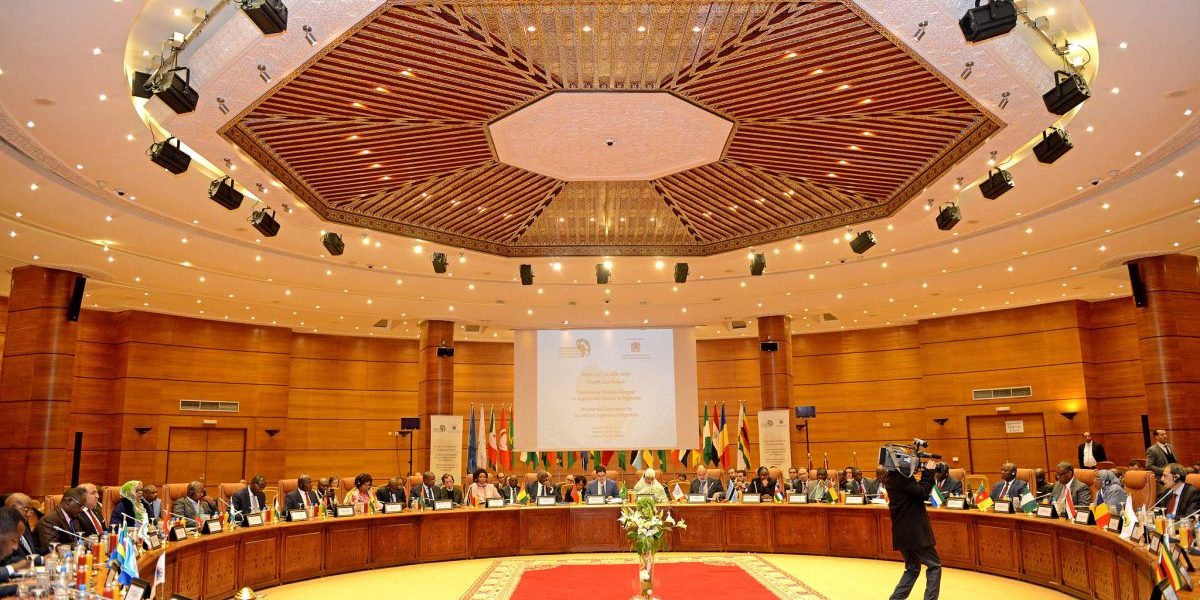He should not be surprised. By any objective analysis of the facts, domestic law and regional and continental frameworks, the run-off was neither legal nor legitimate. If this was a legal matter before a court of law, the most just scenario would have been for the AU not to recognise Mugabe’s election as president. But politics are notoriously messy. So while the AU’s statement on the summit’s last day could have been stronger, it at least represented a clear break from past practice.
How then should the AU and the region break the political and economic impasse? In recent statements by the MDC and Zanu-PF, both have excluded talks or negotiations about a government of national unity. But it is clear that talks between the parties are essential. Without talks followed by action Zimbabwe will be condemned to a ‘Groundhog Day’ scenario, ie a continuation of the economic, humanitarian and political crisis. But negotiations will only succeed if SA, SADC and the AU turn the screws on Zanu-PF.
Let’s examine the options. South Africa has long talked about a government of national unity. But a government led by Mugabe, with the MDC as junior partner would not be acceptable to the MDC, who after all, won both the parliamentary vote and the single largest number of presidential votes in March. This GNU would govern ostensibly until the next elections. Unless Tsvangirai was president and the MDC held a number of important portfolios such as finance it is virtually inconceivable to believe that it would accept such an option as it would be a perpetuation of the status quo and a clear subversion of the democratic outcome of the first round of elections. Neither would they accept Mugabe as part of such a GNU.
The second option is a transitional government, which would again have to comprise members of both parties but would operate for only a limited period (one to two years). Its primary function would be to lead an inclusive process of drafting and agreeing to a new constitution, and then preparing for elections. The question of who would be the senior partner would again be a potential stumbling block. The transitional government would also have to consider the depoliticisation of the security forces and indeed of all the institutions of state. Neither option is perfect, but the latter would be better as its raison d’etre would be to address the constitutional issues, which have been the bone of contention since the 2000 referendum.
A crucial element in both scenarios would be the role of the security forces who have stated previously that they would not accept Tsvangirai as president. Clearly, while the MDC may hold the legitimacy card, Zanu-PF has the support of the security apparatus.
How should the continent handle these dynamics?
First, SADC and the AU must insist that the current environment in Zimbabwe is untenable and that talks are a vital prerequisite to resolve the crisis. In the absence of a clear commitment to a roadmap for talks (and clear timeframes) SADC and the AU should suspend Zimbabwe from all continental bodies citing the SADC protocol on elections and the AU’s framework declaration on unconstitutional changes of government. It should also adopt arms and financial sanctions, aimed at the elite.
Second, SADC and the AU must recognise that it is impossible for any talks or mediation to begin unless there is a return to some semblance of political normality. Thus certain preconditions must be met. These are: the release of all political prisoners immediately; the confinement to barracks of all security forces; the disarmament of all militias and the immediate cessation of violence; and the conversion of the Pan-African Parliament election monitors into peace monitors to ensure compliance with AU/SADC conditions.
Lastly, the process requires mediation by a neutral third party, who has the trust of both sides. SADC should seriously consider widening the mediation team to include an African statesperson – perhaps from beyond the region – who has the confidence of the MDC, and who therefore can enhance the mediation initiative led by South Africa.
The balance of power in terms of brute force is in Zanu-PF’s favour. If there was any doubt it was dispelled in the period between the March and June elections. However, the MDC does hold some trump cards. It can provide Zanu-PF with legitimacy provided the region is willing to deprive Mugabe of that in the absence of MDC participation in government.
Furthermore, many cadres of Zanu-PF know that they cannot solve the economic crisis on their own. Mugabe’s removal from the hot seat might make it easier, but MDC participation in government would open lines of credit and development assistance.
In the period before the June run-off, Zanu-PF and the security apparatus removed all pretences of respect for the rule of law and due electoral process. This is the critical test for the AU and its institutions. Over the last eight years SADC and SA’s softly-softly approach has provided many ‘carrots’, but the time has come to show the ‘stick’. Zimbabwe is not the only violator of many continental protocols, but it is most stark because of where the country has come from and where it could be.








